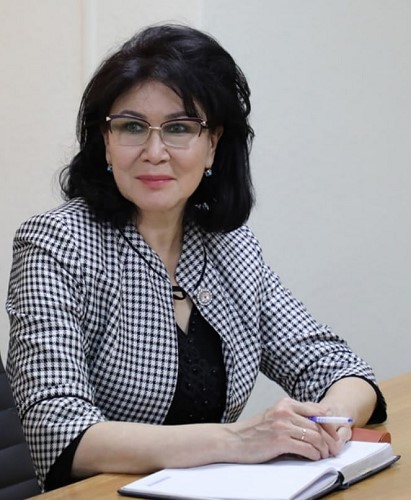Laylo Tashpulatova, Head of the Center for Sustainable Development of the Institute for Advanced International Studies of the University of World Economy and Diplomacy
On 11 November, 2022, an important international event will take place in Samarkand – the next summit of the Organization of Turkic States (OTS), where Uzbekistan will assume the chairmanship of the organization. At the moment, the OTS includes Azerbaijan, Kazakhstan, Kyrgyzstan, Turkey and Uzbekistan, Hungary and Turkmenistan participate in its activities as observers.
The most important promising areas and priorities of cooperation between the OTS countries are formulated in the strategic document adopted in 2021 – “Vision of the Turkic World – 2040”. The document is a roadmap for deepening cooperation between the Turkic-speaking states in such priority areas as security, transport and customs, information and communication technologies, energy, tourism, healthcare, environment, agriculture, culture, education and science, youth and sports, work with diasporas and others.
Many experts emphasize that thanks to the built-up economic dialogues, the established process of interaction, the OTS is becoming not just a platform for the development of interstate relations, but has the prospect of becoming an effective tool for joint confrontation with new global challenges and threats.
Speaking at the eighth summit of the Cooperation Council of Turkic-speaking States in November 2021, President Shavkat Mirziyoyev stressed that the rapid processes taking place in the world today, various challenges and threats, trials caused by the pandemic, problems of food security, ecology and climate change pose new urgent tasks to the member states of the organization.
In this regard, the leader of Uzbekistan has put forward a number of initiatives aimed at more fully utilizing the enormous potential of cooperation between our countries and strengthening the organization.
During his speech on 13 October 2022 at the 6th meeting of the Conference on Interaction and Confidence-building Measures in Asia, the Head of Uzbekistan proposed new approaches to overcome problems in the field of food security. These are the formation of sustainable food production schemes and optimal chains of its delivery, the harmonization of technical regulations for the growth of intraregional trade, the creation of an integrated food security monitoring system in Asia.
Currently, the problem of food security is of a global nature: the production, distribution and trade of food is the most important tasks of the economic development of each nation, regardless of the extent to which the country is provided with food production per capita, what proportion of the country’s population faces problems of malnutrition.
Providing the population with food is one of the main goals of any government and a prerequisite for national sovereignty. Joining the efforts to ensure food security and the development of sustainable agriculture is one of the priorities of active and constructive cooperation between the countries of the OTS, outlined in the strategy “Vision of the Turkic World – 2040”.
Currently, the modern interpretation of the term “food security”, including the economic context, is inseparable from the principles of social justice, which require the adoption of economic, environmental, and social policy measures aimed at eradicating poverty, exercising all human rights, and ensuring the sustainable functioning of the food system.
Ensuring food security and safe nutrition are the most important strategic development priorities identified by the UN in the 2030 Agenda for 17 Sustainable Development Goals (SDGs), where Goal 2 is defined as eliminating hunger, ensuring food security and improving nutrition and promoting sustainable agricultural development.
In this regard, it should be noted that ensuring food security is not a sectoral issue of the agri-food sector, but a macroeconomic priority of all countries, regardless of level of development. The problem of food security must be addressed comprehensively: through agrarian policy, income policy, development of food infrastructure, investment priorities and appropriate measures of foreign trade policy.
The problems of food security within the framework of the OTS were considered in this context at the first meeting of the OTS member states’ Ministers of Agriculture and the first Turkic Agroforum in Tashkent in July 2022, with the participation of more than 300 representatives of relevant ministries, international and regional organizations, and business circles of the member countries and observers. It was emphasized that it is critical to promote the expansion of trade and economic cooperation potential, including by removing barriers, mutual recognition of safety certificates, and the establishment of “green corridors” for the promotion of food products.
Moreover, in the summer of this year, an exchange of views on overcoming modern challenges and threats in the field of food security took place during the First Meeting of the Secretaries of the Security Councils of the member states and observers of the OTS.
Thus, given that the problems of food security are complex, interrelated, cross-border in nature, it becomes very important to ensure regional coordination in order to expand the potential of trade and economic cooperation between the countries of the region.
It is expected that the summit in Samarkand will adopt the OTS Strategy for 2022-2026, as well as a number of other documents that will open up new opportunities for fuller realization of the trade, economic, cultural and civilizational potential of the OTS countries and will contribute to overcoming food security risks that objectively emerge in the conditions of modern realities of the geo-economic situation. ///nCa, 10 November 2022 (in cooperation with Embassy of Uzbekistan in Turkmenistan)
